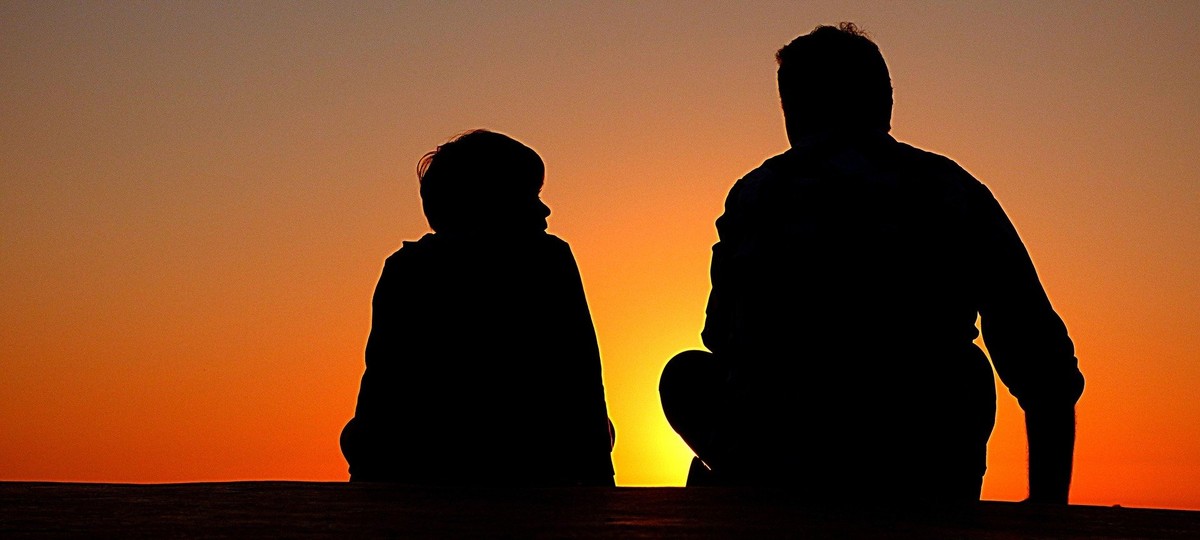
Yup. It's time to talk about dad jokes. Specifically, when and why did dumb puns become synonymous with fatherhood? When I was a kid, knock-knock jokes were clearly kid jokes, but so were the silly one-liners:
— Why did the moron tiptoe past the medicine cabinet? He didn't want to wake the sleeping pills.
— Why are elevator jokes so good? They work on many levels.
— Want to hear a joke about construction? I'm working on it.
They say the drunk never writes the drinking song, so I'm sure those kiddie jokes were not written by kids. But they seemed very clearly in the rug rat wheelhouse.
And now we're supposed to hear a joke like, "I was addicted to soap, but now I'm clean" and think first and foremost of fathers? What a demotion for guys! I mean, these are groan men!
(Sorry.)
"As a dad myself, the term 'dad joke' dawned on me during Halloween," recalls Eugene Romberg, a real estate investor at We Buy Houses in Bay Area (I think you can guess where in California he lives). "I told my wife, 'There's only one thing I'm afraid of during Halloween.' She replied, 'Which is?' And I said, 'Exactly.' It was a joke I saw on Reddit." Said wife glared at Romberg for a bit and then muttered that he had just made his first "dad joke." He had to go and look it up.
Wikipedia says that dad jokes are short jokes or puns, sometimes deliberately unfunny or overly simplistic. But didn't dads used to be fonts of fatherly wisdom? How did they morph into designated doofuses?
"The dad joke is old-fashioned," says Tom O'Keefe, co-host of the podcast "Reel Spoilers." Middle-aged men like him grew up with one-liners: setup/punchline. But today's comedians are more storytellers or observational types. As one-liners aged, so did the folks telling them, until finally, they became fathers themselves. Their joke style, like their hairstyle, aged along with them.
And Homer Simpson didn't help. While he's no Henny Youngman (he's no young man at all!), Homer is the prototypical sitcom pop: a paunchy, out-of-touch dumbbell. "I think the dumbing down of culture began when cartoons began to be prime-time TV," says David Reischer, a Manhattan attorney and cultural critic. He sees Homer as one of the main shapers of "this whole idea that dads are stupid and just want to drink beer." And he doesn't think that happened accidentally.
"This recent cultural shift aimed at taking down the 'patriarchy' has made great efforts to emasculate all men with constant reminders via entertainment that all men are stupid, goofy, clueless and doofy," Reischer wrote in an email. "This propaganda effort is ... insidious and relentless."
While I'm not sure Hollywood is that well-organized, it's true that once Homer became the king of the hill (as it were), he bumped off the TV image of Dad as a wise, pipe-smoking breadwinner.
Instead, "There's this sort of idea of the dad as put out to pasture," says Julian Velard. And he should know. The singer/songwriter appears as "Sad Dad" on "The Howard Stern Show" and NPR. (Always wanted to put those in the same sentence!)
"Moms are viewed as active in our culture, whereas the dad is just sort of on the sidelines," Velard says. The humor they dispense "is not considered witty. The whole idea of a dad joke is that you're giving up on trying to be sexy or smart or anything."
Except for lovable. A big except!
Dad jokes make kids smile. Usually, Mom laughs despite herself. And now you will, too:
Two goldfish are in a tank. One says to the other, "Do you know how to drive this thing?"
Happy Father's Day!


 Contact The Editor
Contact The Editor
 Articles By This Author
Articles By This Author